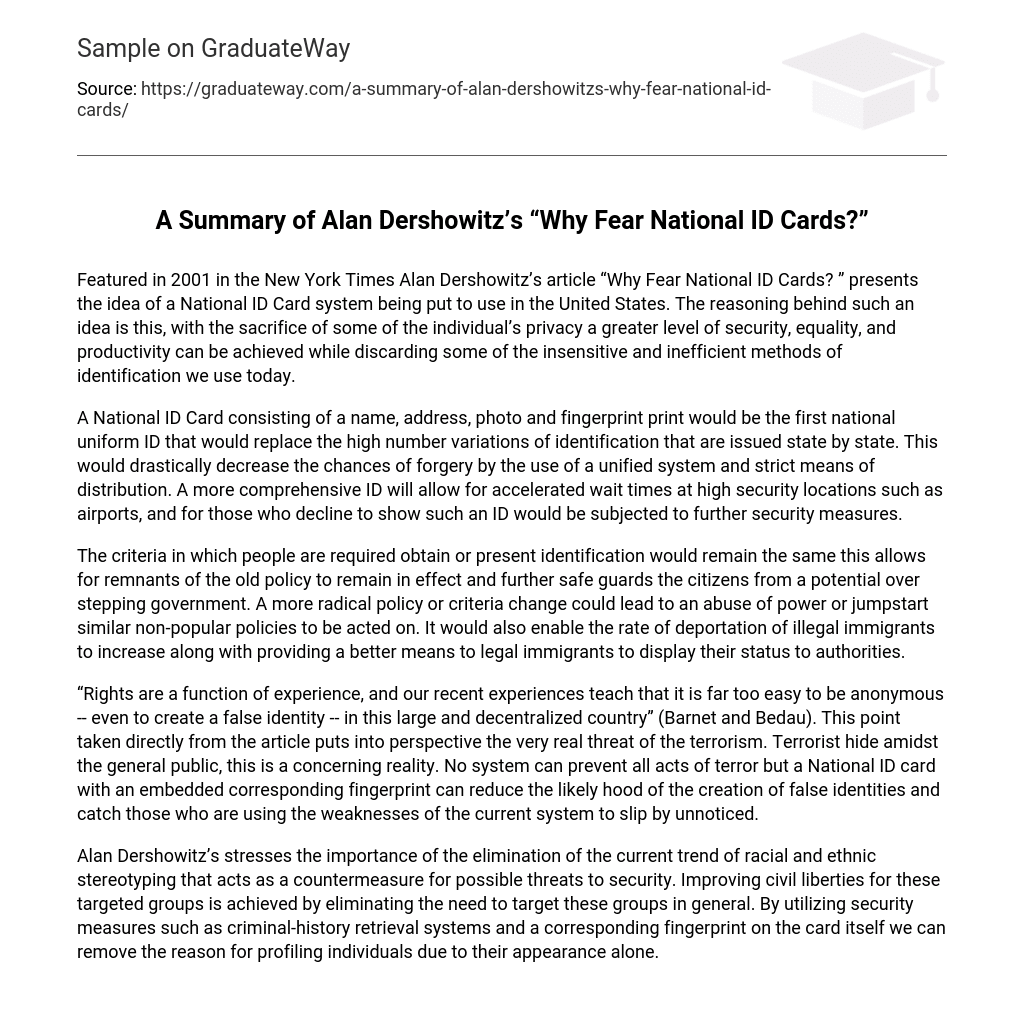In the New York Times article “Why Fear National ID Cards?” from 2001, Alan Dershowitz discusses the concept of implementing a National ID Card system in the United States. Dershowitz believes that by compromising some aspects of individuals’ privacy, the country can attain higher levels of security, equality, and productivity, while replacing the current ineffective and insensitive identification methods.
A unified National ID Card would replace state-issued identification, reducing forgery risks through a standardized system and strict distribution methods. The card, containing a name, address, photo, and fingerprint print, aims to minimize variations in identification. Its comprehensiveness would expedite wait times at secure locations like airports. Individuals who refuse to present this ID would face enhanced security measures.
The current criteria for obtaining or presenting identification would remain unchanged, preserving elements of the previous policy and protecting citizens from potential government overreach. Implementing a more extreme policy or changing the criteria drastically could lead to power abuse and potentially initiate unpopular policies. Additionally, it would facilitate an increase in the deportation rate of undocumented immigrants and enable legal immigrants to more effectively demonstrate their status to authorities.
According to Barnet and Bedau, rights are dependent on experience, which has taught us that it is too easy to remain anonymous and create fake identities in a country as large and decentralized as ours. This highlights the true threat of terrorism, as terrorists can blend in with the general public. While no system can completely prevent all acts of terror, implementing a National ID card with an embedded fingerprint can help decrease the chances of false identities being created and enable the capture of those who exploit the vulnerabilities of the current system to go undetected.
Alan Dershowitz emphasizes the significance of eradicating the prevailing pattern of racial and ethnic stereotyping as a precautionary measure against potential security risks. The enhancement of civil liberties for these marginalized groups can be achieved by eliminating the necessity to single out these groups in general. By employing security measures like criminal-history retrieval systems and incorporating a fingerprint on identification cards, we can eliminate the grounds for profiling individuals based solely on their physical traits.





